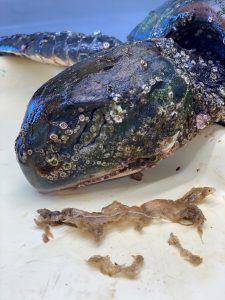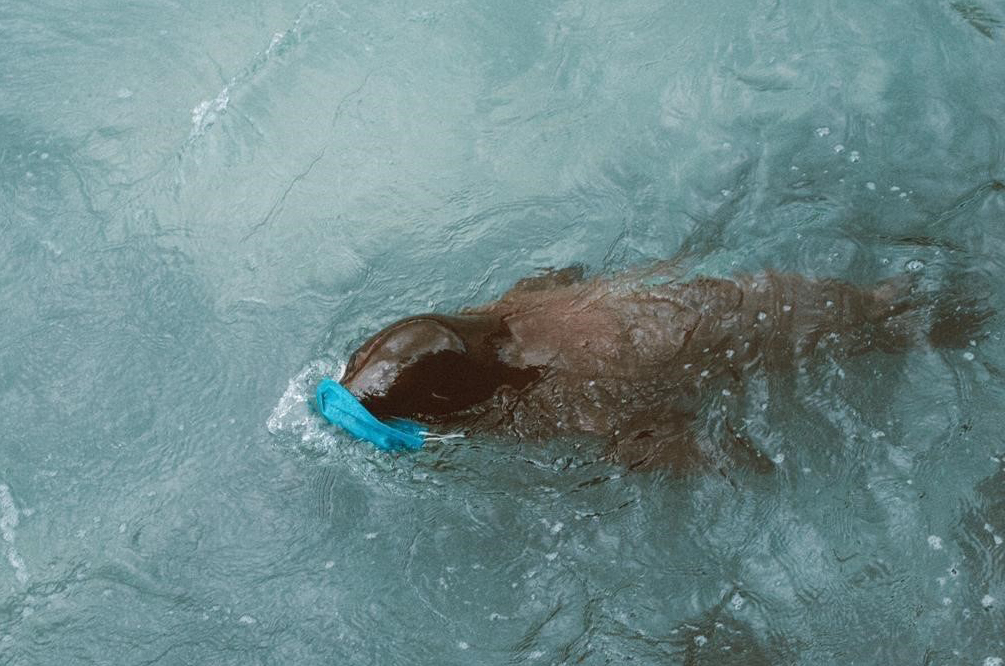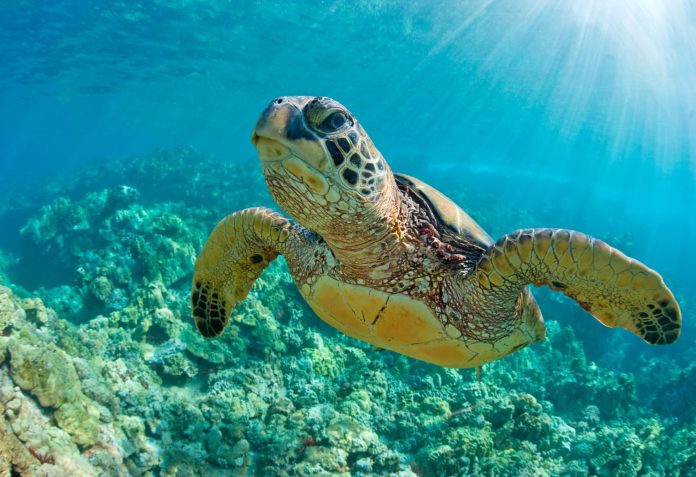Images of a sea lion playing with a face mask in the Galapagos Islands and of a dead sea turtle found off Queensland with a mask in its gut will be entered into an archaeological record of the environmental impact of COVID-19.
In a global collaboration, USC marine biologist Dr Kathy Townsend, who leads ground-breaking international research into the impact of debris on marine life, has joined with archaeology and social policy academics to highlight the environmental pollution resulting from the pandemic response.
In a journal paper in Antiquity, the authors suggest that applying an archaeological lens to COVID waste and giving it the status of archaeological material can add to understanding of the pandemic and inform policies that may mitigate its longer-term environmental impact.
The study said that increased pollution caused by COVID-specific, single-use plastic, mostly generated by measures aimed at stopping the spread of infection, would characterise this pandemic.

“The logical leap is that during COVID lockdowns and travel restrictions there should be a reduction in marine debris showing up in our world oceans, but that isn’t the case,” Dr Townsend said.
“Marine debris has just been replaced with different kinds of rubbish – not the least of which are PPE (personal protective equipment) items such as discarded gloves and of course, single-use facemasks, which have quickly become the symbol of the coronavirus,” she said.
In the UK alone, 748 million items of PPE, amounting to 14 million items a day, were delivered to hospitals in the two or so months from 25 February 2020, comprising 360 million gloves, 158 million masks, 135 million aprons and one million gowns.
“With COVID-19, the related plastic is both omnipresent and highly resilient, and its effects are diverse and significant.”
The study authors include lead Professor John Schofield, Director of Cultural Heritage Studies at the University of York, University of York PhD candidate Estelle Praet and Dr Joanna Vince from the University of Tasmania’s School of Social Sciences.
Dr Townsend said social media was used to analyse more than 18,000 images of marine debris posted by people across the world on different platforms, including Twitter, Instagram and Facebook. By doing this, the team could track the change of public reaction and the advice provided around COVID 19.
Help keep independent and fair Sunshine Coast news coming by subscribing to our free daily news feed. All it requires is your name and email. See SUBSCRIBE at the top of this article.
“During the early days of the pandemic, when it was thought that the virus was spread through direct contact, disposable gloves were the primary type of debris found between April and May 2020,” Dr Townsend said.
“However, as it became clear that it was caused by airborne transmission, the debris found in the environment started to include single-use masks.”
Two PhD candidates supervised by Dr Townsend also recorded graphic evidence of the impact of environmental pollution resulting from COVID waste.
“We recently autopsied a dead green sea turtle that had washed up on a Sunshine Coast beach and found a disposable face mask among more than 500 items of rubbish in its stomach,” she said.

“Another PhD student researching plastics pollution in the Galapagos Islands also recorded a sea lion playing with a face mask.”
Professor Schofield said in the report the COVID-19 pandemic was creating a viral archive, and COVID waste provided an archaeological record of history in the making.
“Understanding human behaviours through the material culture it leaves behind is what archaeologists do, whether in prehistory, the medieval period, or yesterday,” he said.
The study authors suggest that pollution created by the COVID-19 pandemic presents a crisis and that an archaeological perspective was uniquely placed to inform a policy-informed approach to tackling environmental pollution.





